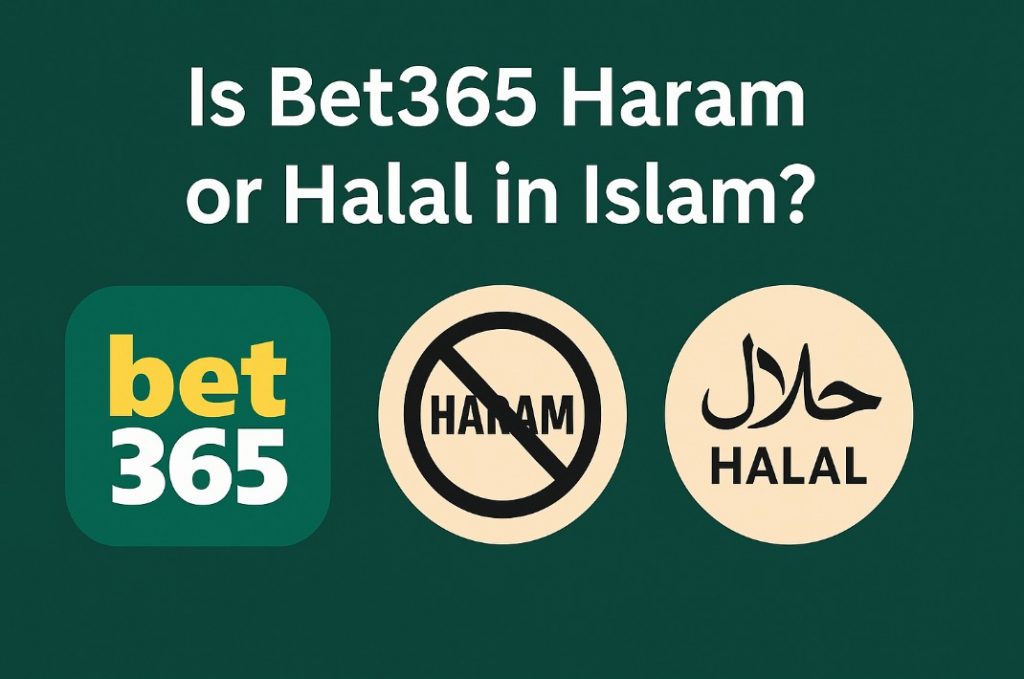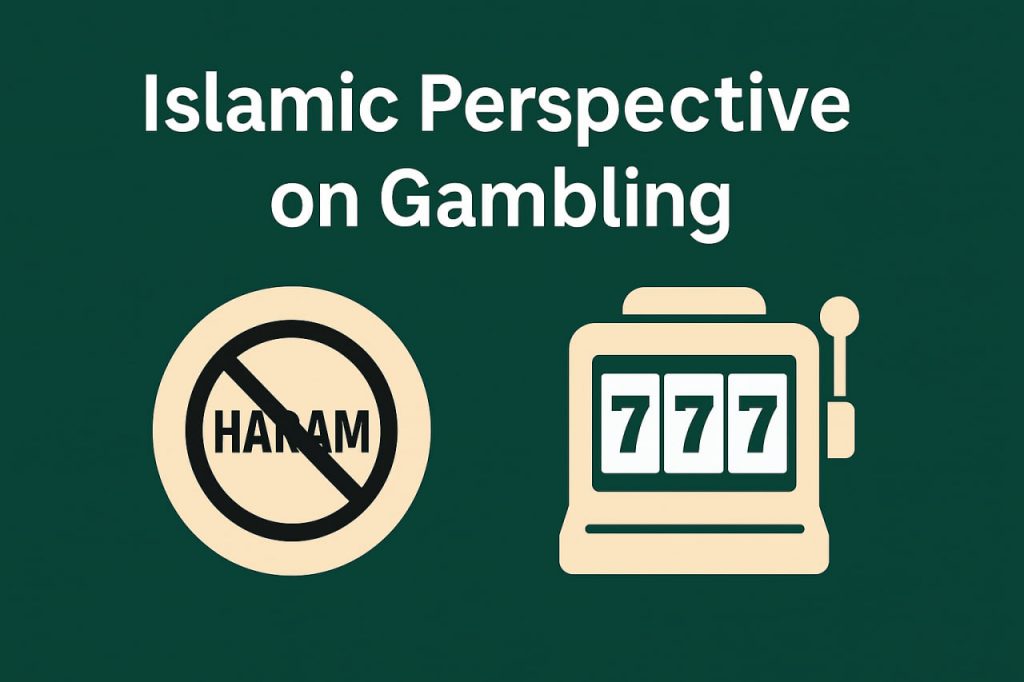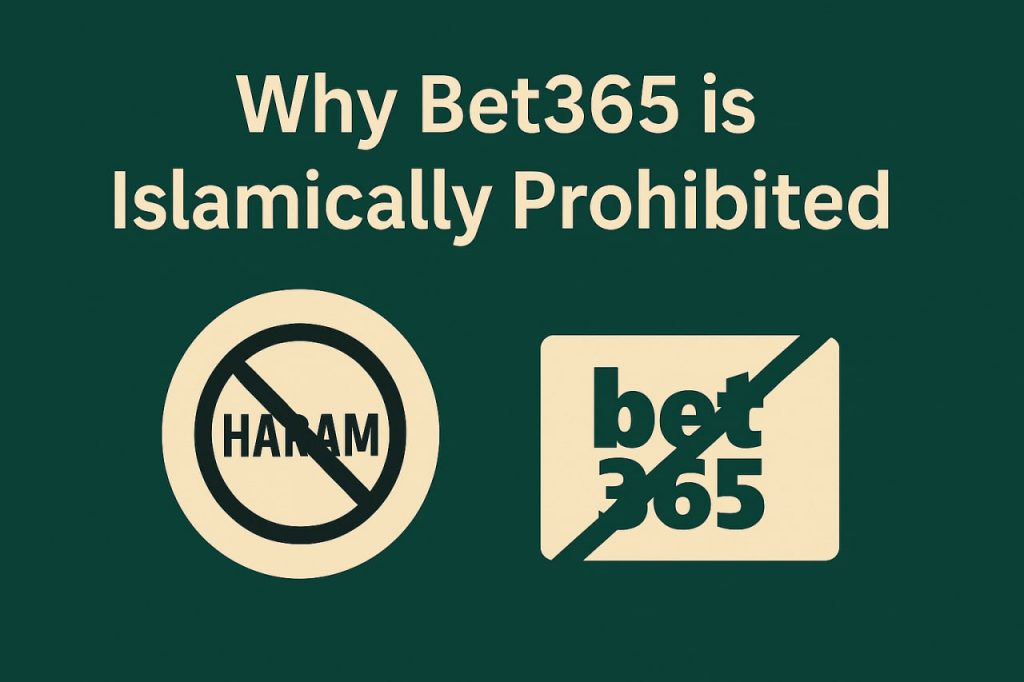Is Bet365 Haram or Halal in Islam?

If you’re wondering is Bet365 haram or is Bet365 halal, you’re raising a question that touches not only on religious doctrine but also on ethical, psychological, financial, and societal issues. As online gambling platforms like Bet365 become increasingly popular, particularly in Muslim-majority countries and among youth, it becomes crucial to understand what Islam says about such services. This comprehensive article provides an in-depth Islamic perspective, referencing the Quran, Hadith, scholarly consensus, and modern socio-economic realities. We explore not only whether Bet365 is permissible in Islam, but also why it is deemed haram by scholars, what consequences it has on individuals and communities, and what halal alternatives exist for Muslims seeking ethical entertainment and financial growth.
What is Bet365?
Bet365 is a prominent global online gambling and sports betting platform that was founded in 2000 in the United Kingdom. It has grown rapidly over the years and now serves millions of users worldwide. Bet365 offers a wide range of betting options including:
- Sports betting (covering popular and niche sports like football, cricket, basketball, tennis, horse racing, MMA, and more)
- In-play/live betting (real-time betting during ongoing sports events)
- Online casino games (blackjack, roulette, poker, baccarat, etc.)
- Slot games and digital gambling machines
- Virtual sports and simulated games
- E-sports betting
- Fantasy sports competitions
The platform is accessible via websites, desktop apps, and mobile devices, with features like live streaming, real-time statistics, player tracking, cash-out options, and promotional bonuses. These features are designed to keep users engaged and often lead to prolonged betting behaviors.
Though legal in many jurisdictions, the permissibility of Bet365 within Islam depends not on civil legality but on divine commandments and moral accountability. Bet365 profits through a gambling business model—something which the Quran and Sunnah have provided clear guidance against.
Understanding Halal and Haram in Islam
In Islam, human actions are categorized based on their moral, ethical, and spiritual value. Every deed is assessed in light of its adherence to Shariah (Islamic law). These categories include:
- Halal (Permissible): Actions allowed by Allah and supported by evidence.
- Haram (Forbidden): Actions that are clearly prohibited due to their harmful nature.
- Makruh (Disliked): Discouraged actions that can become sinful if persistent.
- Mustahabb (Recommended): Praiseworthy actions that earn reward.
- Fard (Obligatory): Required acts that, if neglected, result in sin.
Haram is not limited to what is written explicitly. It also includes anything that leads to exploitation, causes harm to the body or mind, affects society negatively, promotes unethical behavior, or disrupts one’s relationship with Allah and others.
Islamic Perspective on Gambling

Quranic Verses Condemning Gambling
The Quran is unequivocal in its condemnation of gambling (maysir) and groups it with other grievous sins:
“O you who have believed, indeed, intoxicants, gambling, [sacrificing on] stone alters [to other than Allah], and divining arrows are but defilement from the work of Satan, so avoid it that you may be successful.”
(Surah Al-Ma’idah 5:90)
“Satan only wants to cause between you animosity and hatred through intoxicants and gambling and to avert you from the remembrance of Allah and from prayer. So will you not desist?”
(Surah Al-Ma’idah 5:91)
These verses not only ban gambling outright but also explain the wisdom behind the prohibition. Gambling, like intoxicants, causes social conflict, emotional turmoil, and distracts believers from their spiritual obligations.
Hadiths on Gambling
The Prophet Muhammad (peace be upon him) also condemned all forms of gambling:
“Whoever says to his friend, ‘Come, let us gamble,’ must give charity.”
(Sahih Bukhari)
“Whoever plays with dice, it is as if he dipped his hands in the flesh and blood of swine.”
(Sahih Muslim)
Such strong analogies show the seriousness of gambling in the eyes of Islam. Even making a suggestion to gamble is considered sinful.
Is Bet365 Halal or Haram? Islamic Analysis
| Criteria | Islamic Verdict | Bet365 Status |
|---|---|---|
| Based on chance and speculation (qimar) | Haram | Yes |
| High uncertainty (gharar) in outcomes | Haram | Yes |
| No productive value created | Haram | Yes |
| Addiction potential and mental health risks | Haram | Yes |
| Generates profit through loss of others | Haram | Yes |
| Promotes unethical behavior | Haram | Yes |
| Encourages distraction from prayer and dhikr | Haram | Yes |
Final Verdict:
Bet365 is considered haram in Islam. It is a platform designed to promote gambling, speculation, and addictive financial behavior—all of which directly oppose Islamic values of fairness, productivity, discipline, and trust in Allah.
Scholarly Consensus Across Islamic Schools
All four major Sunni schools and respected Shia scholars concur that gambling is impermissible:
- Hanafi: Categorizes all gambling as void and sinful. It exploits people’s desires without offering real benefit.
- Maliki: Strictly prohibits gambling due to the injustices and unpredictability it brings to financial transactions.
- Shafi’i: Declares any form of speculation for gain as qimar and therefore haram.
- Hanbali: Views gambling as a morally degrading and socially damaging practice that must be avoided.
Contemporary scholars, including those in global fatwa councils and Islamic finance boards, reinforce this stance, particularly with respect to online gambling platforms like Bet365.
Why Bet365 is Islamically Prohibited

1. Element of Gharar (Uncertainty)
Gharar is forbidden in Islamic contracts. Bet365 operates on uncertainty where the outcome and returns are unknown and speculative.
2. No Value Creation
Islam values labor, trade, and investment. Bet365 promotes wealth without effort, trading, or productivity.
3. Addiction and Psychological Harm
Digital gambling has been linked to gambling disorder, depression, and anxiety. Bet365 uses algorithms to increase user engagement and dependency.
4. Moral Decline and Social Harm
It shifts individuals from seeking halal income to chasing illusionary wealth, often leading to lies, debt, and relationship breakdowns.
5. Economic Instability
Money lost through gambling could be used for food, education, or family support. Instead, it becomes part of a destructive cycle.
Broader Consequences of Gambling via Bet365
- Personal Harm: Isolation, regret, debt, suicidal ideation.
- Family Issues: Divorce, broken relationships, abuse.
- Community Impact: Increase in crime rates, poverty, moral decline.
- Spiritual Corruption: Weakens trust in Allah’s sustenance and invites Shaytan’s influence.
Halal Alternatives to Bet365
Muslims who enjoy sports and competition can explore halal alternatives:
- Fantasy Leagues Without Fees – Enjoy sports-based competition without any financial risk.
- Skill-Based Tournaments – Compete in trivia, video games, or e-sports based on ability.
- Islamic Investment Platforms – Grow wealth responsibly with Shariah-compliant stocks.
- Sports Viewing Platforms Without Ads – Use services that don’t advertise or link to betting.
- Reward-Based Competitions Without Gambling – Participate in contests where performance, not chance, earns rewards.
Final Thoughts
So, is Bet365 halal or haram? After examining the evidence from the Quran, Hadith, scholarly consensus, and real-world effects, the answer is clear: Bet365 is haram. It not only promotes prohibited gambling behavior but leads to broader societal harm.
Muslims should strive to avoid such platforms and instead seek halal avenues for entertainment and income. This ensures not just material well-being, but also spiritual growth and closeness to Allah.
“Whoever gives up something for the sake of Allah, He will be compensated with something better.” — Prophet Muhammad (peace be upon him)
Frequently Asked Questions
No. All gambling is prohibited regardless of scale or frequency.
Haram income cannot be purified through charity. The origin of the wealth invalidates the donation.
While technically permissible, it is discouraged due to the exposure to sinful content.
Yes. Civil law does not override Shariah. Haram remains haram regardless of geography.
